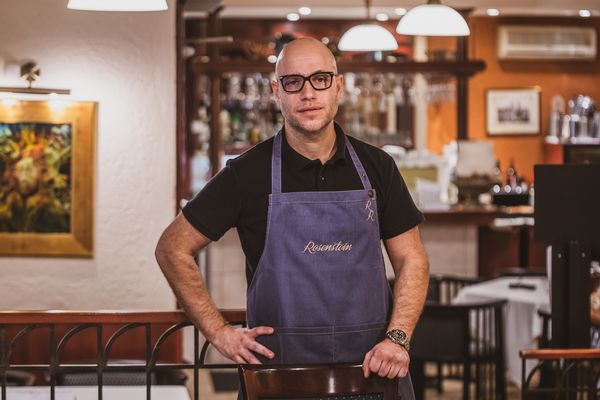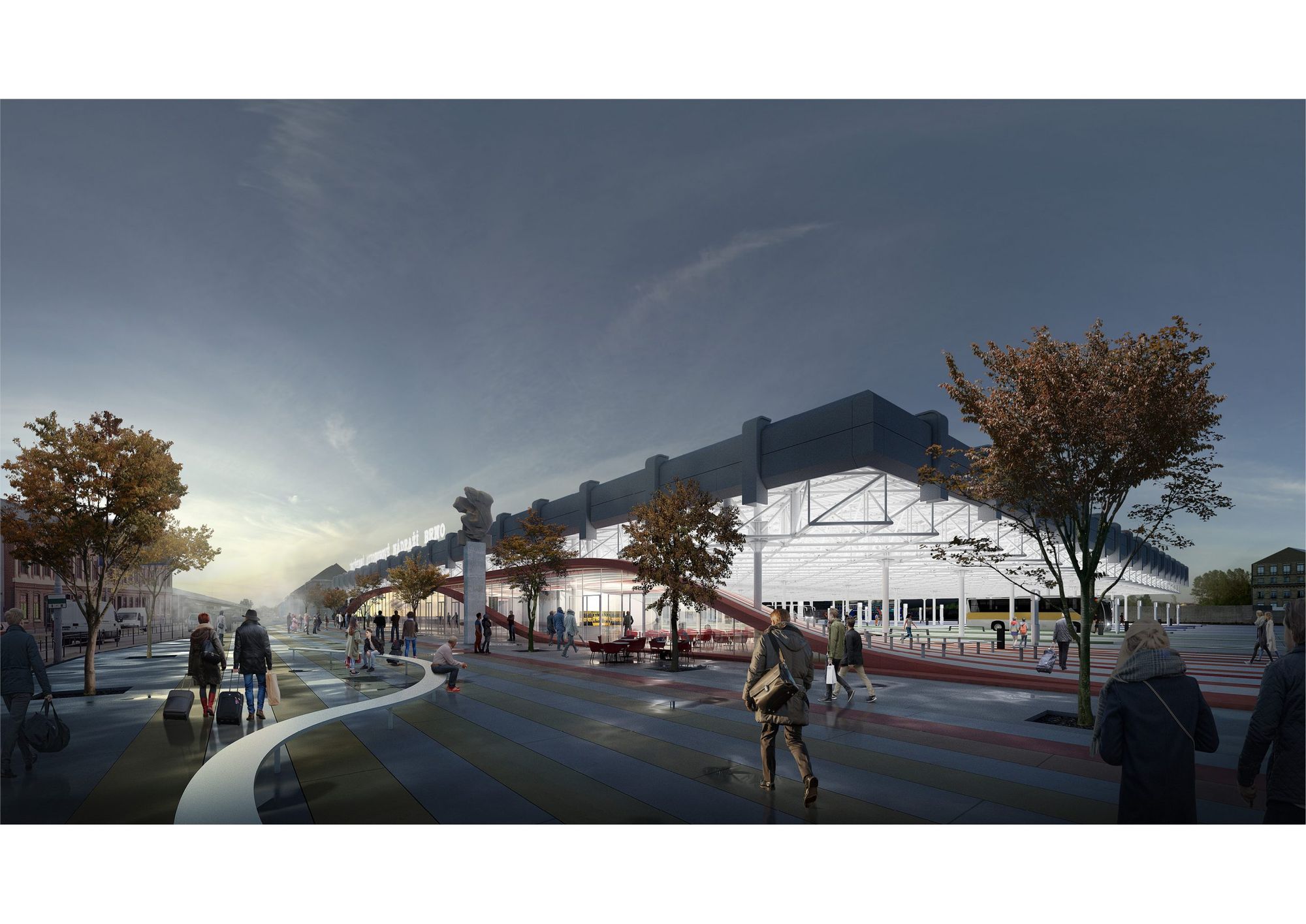Architect studio Chybik+Kristof volunteered to design the renovation of Zvonařka Central Bus Terminal in Brno, thus reaffirming their commitment to preserving the Brutalist heritage and satisfying the needs of society.
Located in the center of Brno, Czech Republic, Zvonařka Central Bus Terminal was built between 1984 and 1988 in response to insufficient capacity of bus stations across the city. After the its privatization in 1989, the high maintenance costs of the monumental Brutalist building led to little upkeep, driving to its gradual deterioration.
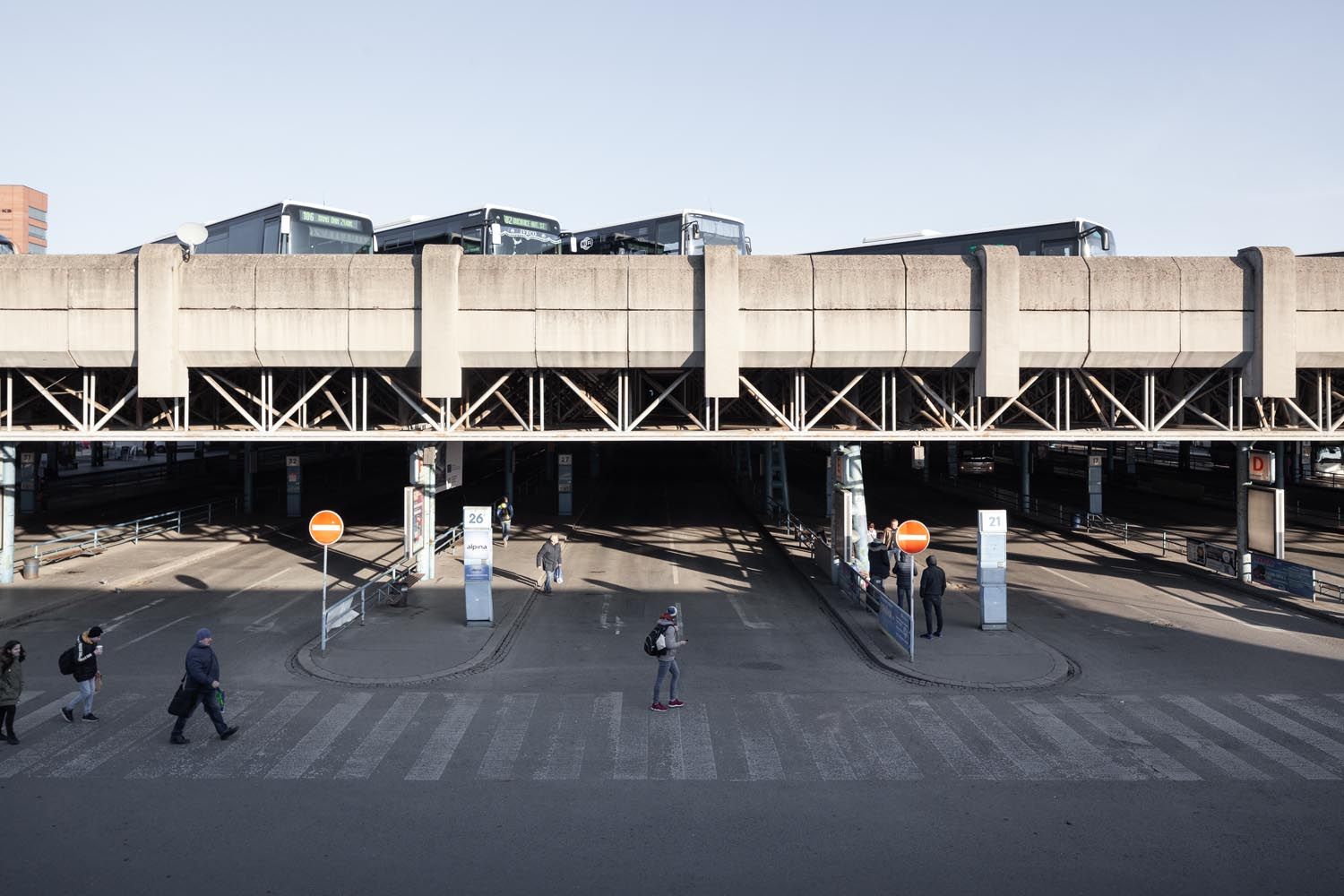
Architect studio Chybik+Kristof relocated their headquarters to Brno in 2011. The architects, who shared a deep connection with the city, realized the decay of the station as well as the potential it offered—not only in terms of architecture, but from a social perspective, too.
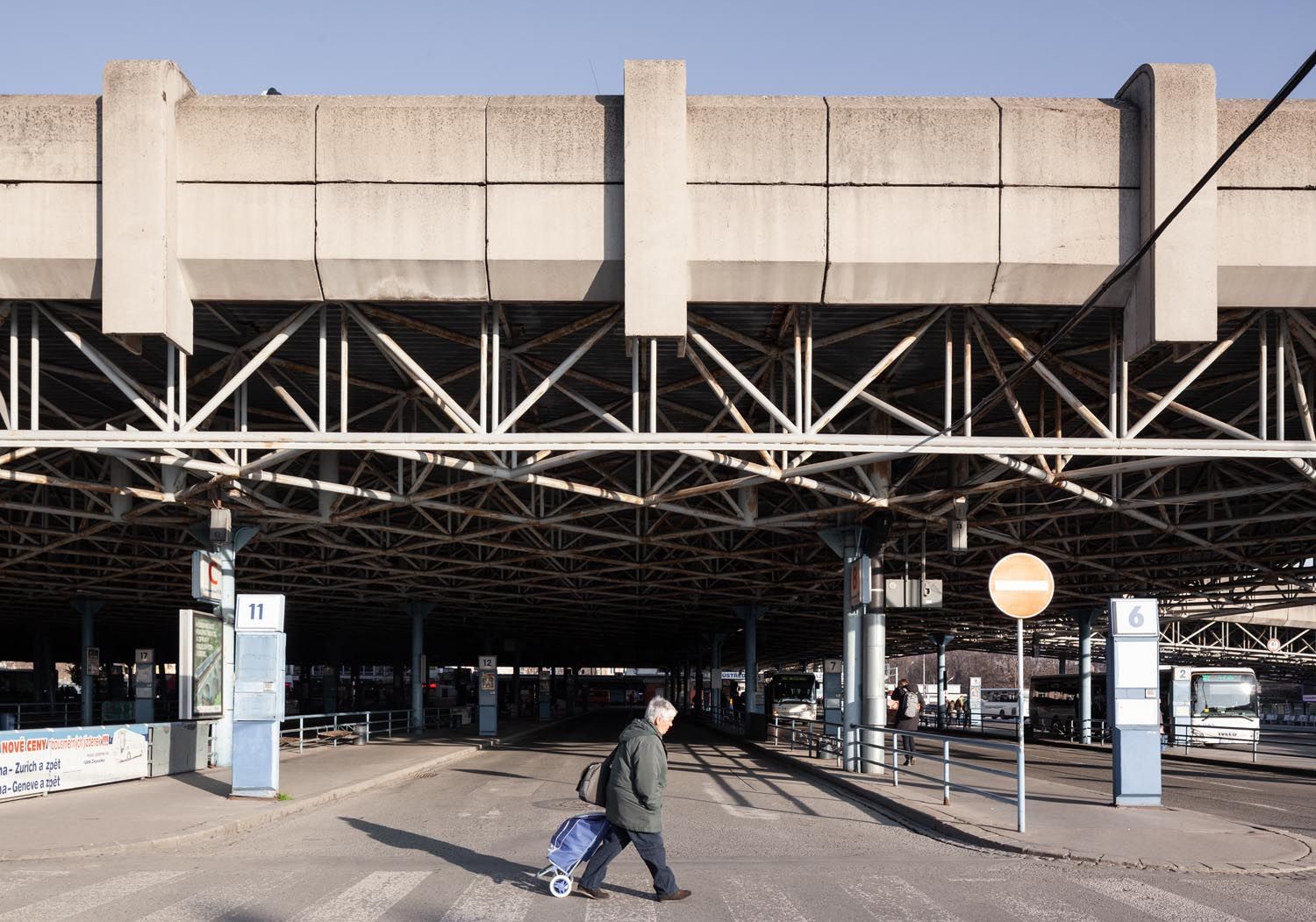
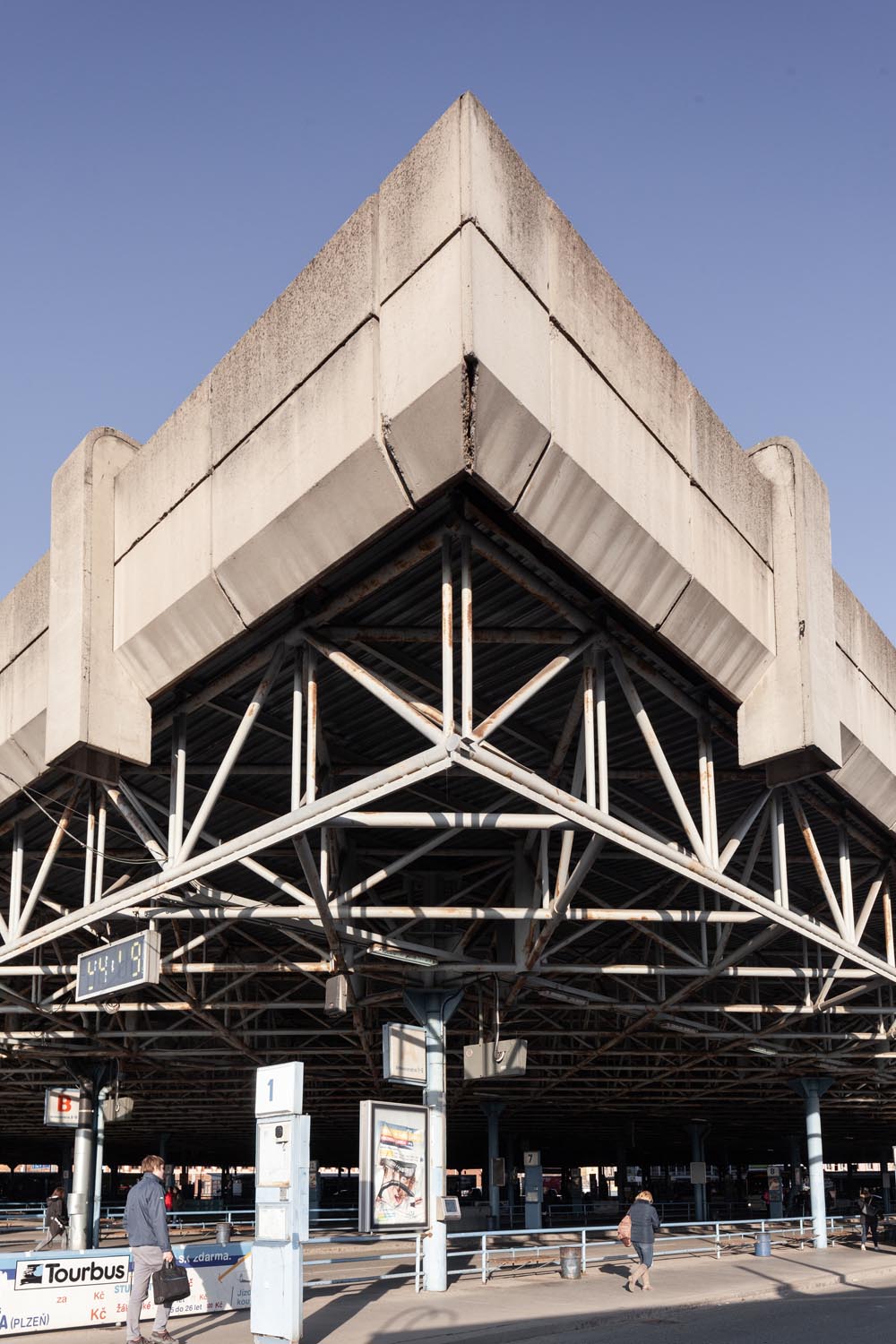
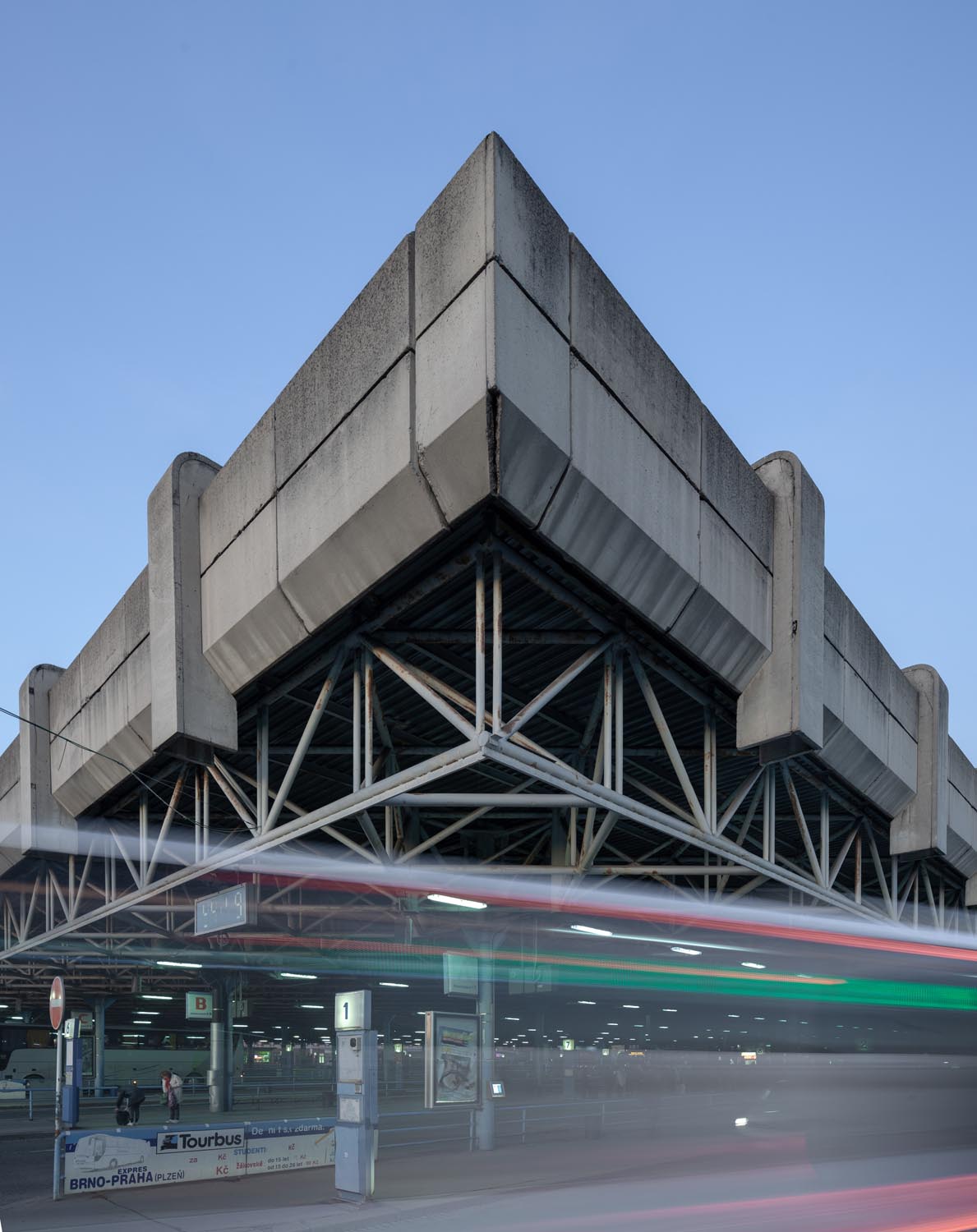
Following the original square floor plan, the main innovations of the plans include the removal of the stands added in the 1990s, thus opening the central space of the station towards the city. This way, the building also receives more light, which will turn waiting into a much more pleasant experience. Painting the structure white and renovating the previously concealed wall art will both give a new life to the now grey and dreary building. The architects also involved members of the city management, private individuals and experts in the renovation process and in correcting past shortcomings—with a clear goal of redesigning the space with a holistic approach, by putting the principles of user-centered design to work.
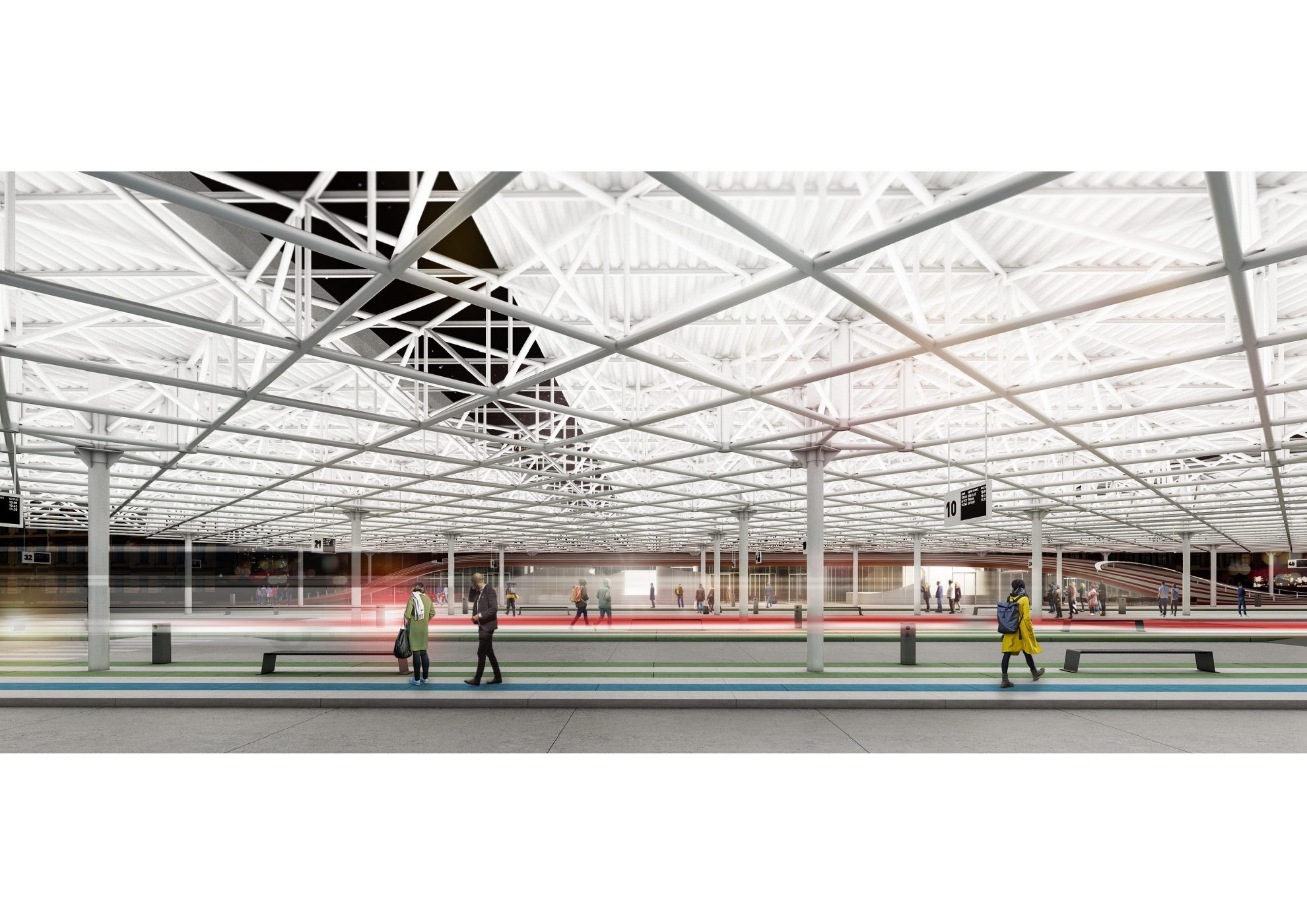
Beyond punctual functional concerns, our profession is tasked with acknowledging and deconstructing the shortcomings at the roots of our urban and social structures, thereby raising public awareness and promoting societal engagement. We see the Zvonařka Central Bus Terminal as embodying the three founding blocks of architects’ social responsibility. First, architecture responds to a functional need that must be clearly and efficiently addressed. Second, this need is expressed by the user of a space, whose experience of the latter must remain at the center of all concerns. Thirdly, and most importantly, architects intervene in a fragile ecosystem, one in which sociopolitical dynamics, economic factors, historical legacies, environmental concerns, to cite only a few, come together. It is essential, if not only ethical, to take all into account. Ultimately, by revisiting the past, engaging with the present and projecting to the future, architects can, and must, be catalysts for change.Ondřej Chybík and Michal Krištof
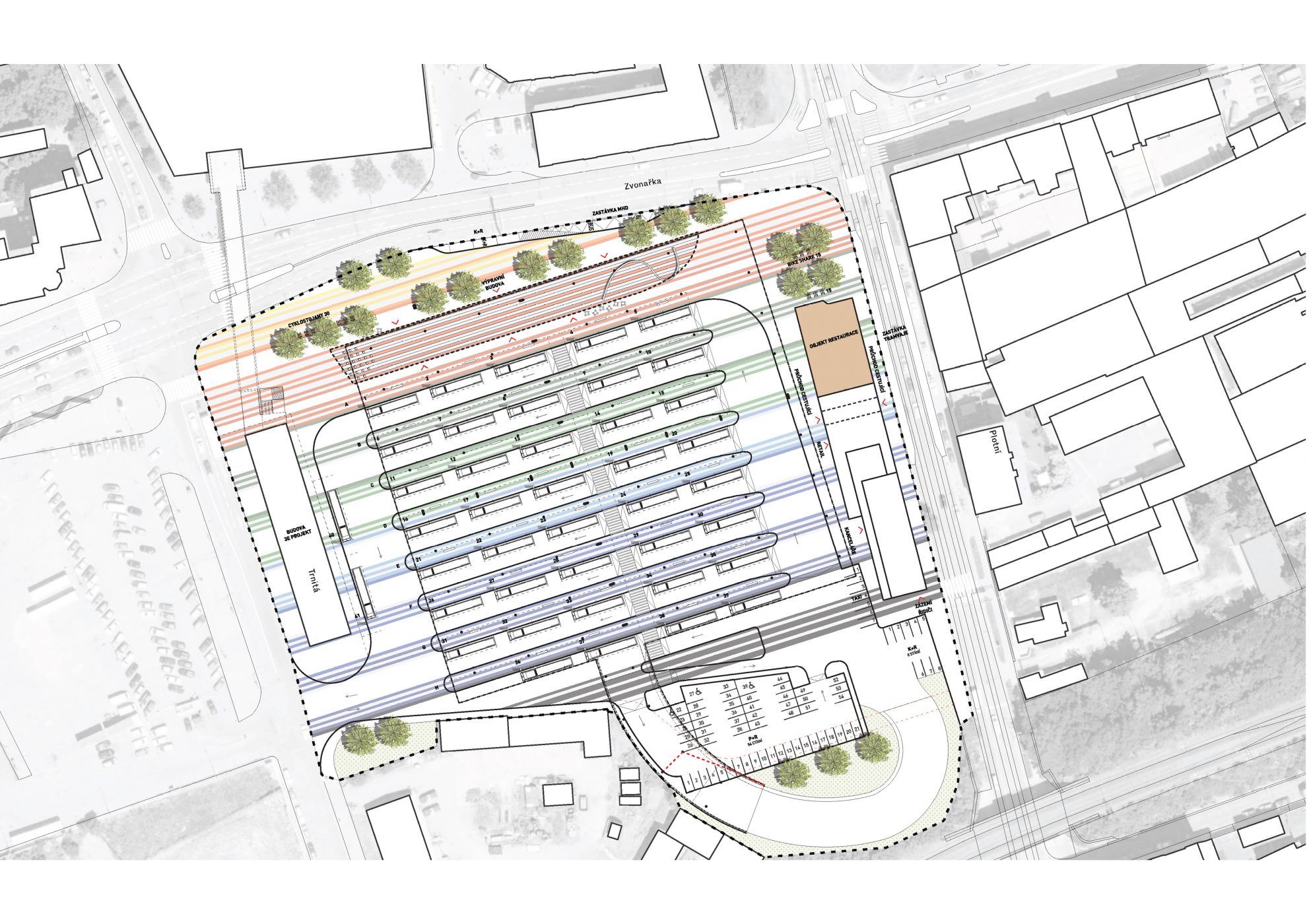

Chybik + Kristof | Web | Facebook | Instagram
Source: press release

HIGHLIGHTS | Board games
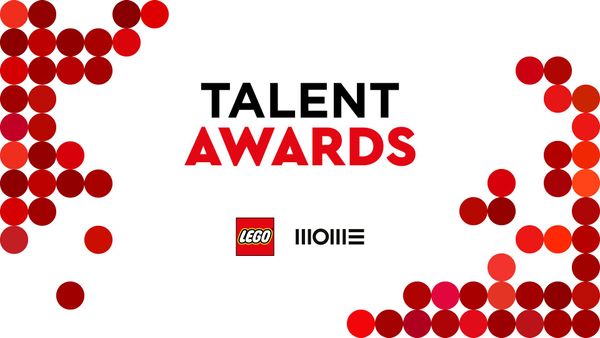
LEGO Hungary and MOME join forces
